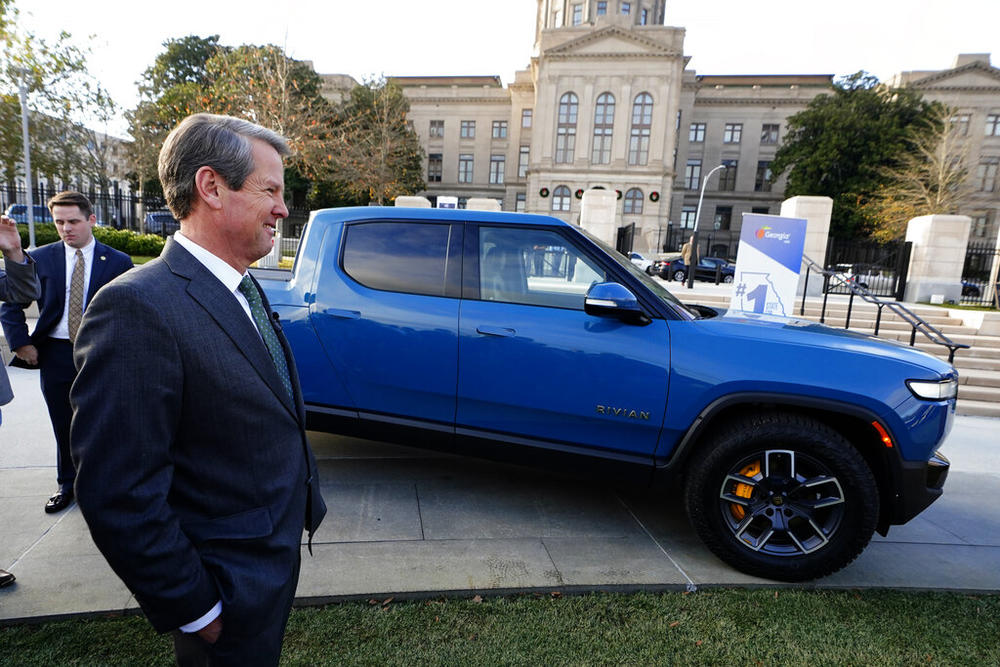
Caption
Gov. Brian Kemp stands next to a Rivian electric truck in December 2021 in Atlanta. On March 29, 2023, the General Assembly passed a bill regulating electric vehicle charging. It awaits Kemp's signature.
Credit: AP Photo/John Bazemore, File

